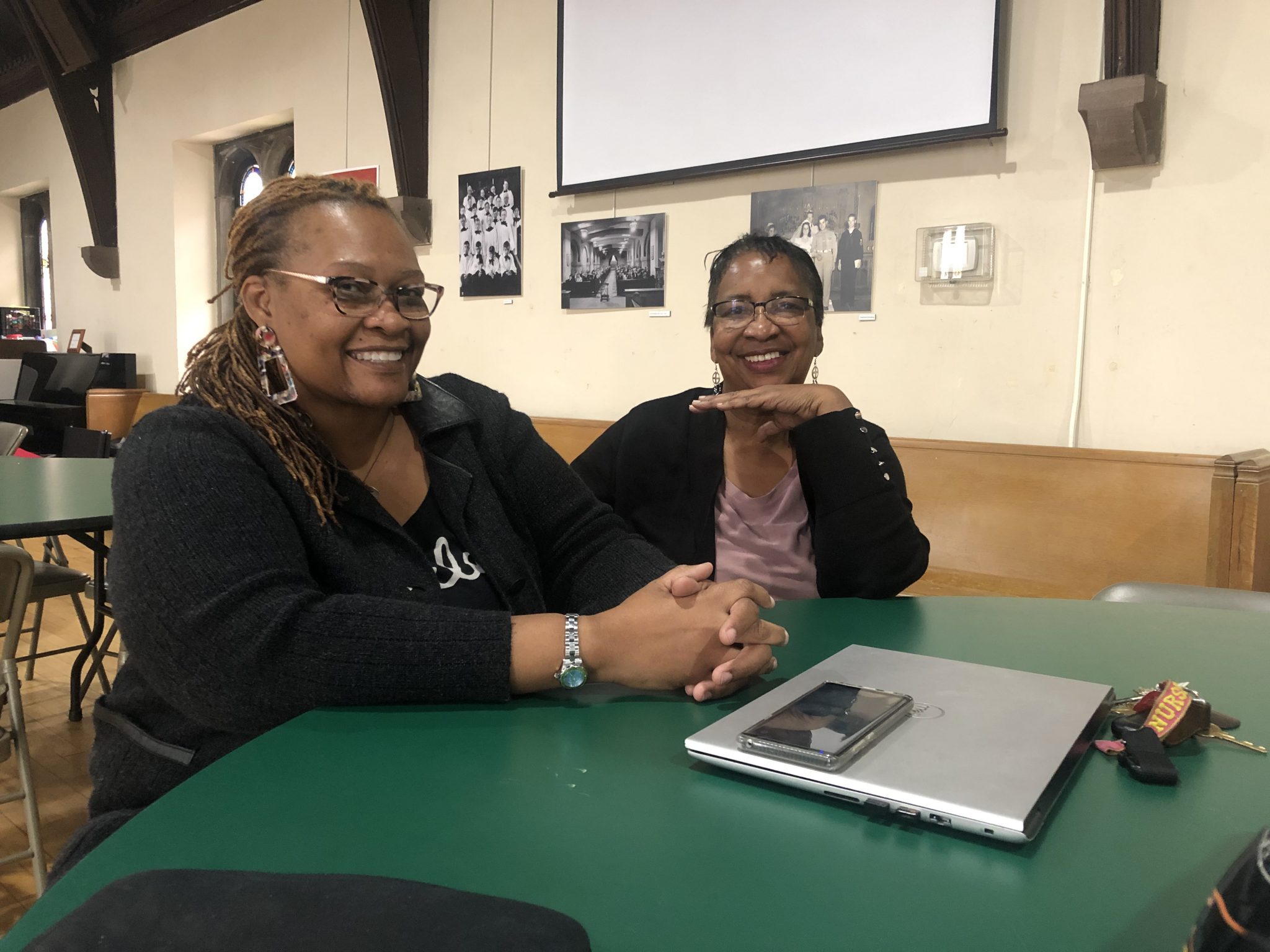By Pam Hersh
When I reconnected with two former colleagues in Trenton over a cup of coffee– my mental and physical healthy-living medicine– neither wanted to talk about the past.
I worked with Greg Paulson when I was a Princeton Hospital employee and he was chief of the Princeton First Aid and Rescue Squad. Michelle Ruess became Packet managing editor a few years after I served in that role, and she became my boss, when I, as a freelancer, continued to write my columns.
Greg and Michelle were only interested in was telling me about their current line of work for the Trenton Health Team (THT), where Greg serves as executive director and Michelle as director of communications. THT has been serving Trenton since 2006, as a community health care and health education collaborative, created dedicated to improving access to quality healthcare for city residents.
Michelle and Greg avoided the catch-up chitchat and instead inspired me to investigate a THT program transforming people’s lives. Within a few weeks of my Trenton Starbucks coffee date, I had a date with other THT employees Cheryl Towns and Clara Gregory at the Trenton Trinity Episcopal Cathedral on West State Street in Trenton.
Over the past five years, faith communities across Trenton have been gathering for services comprising prayers, hymns and religious rituals – and an important additional ingredient. From cathedrals to mosques, members have been learning about the “mind, body, spirit” connection through the Faith in Prevention (FIP) program aimed at converting them to a healthier lifestyle.
“It has been very helpful,” said Trinity Episcopal Cathedral Dean Rene John. “We all lead such stress-filled lives that it’s good to have an opportunity to educate people so they can make healthy choices.”
And these are choices that may include, but go far deeper than, enjoying a cup of coffee at Starbucks.
FIP, a state-funded community education program is a partnership with houses of worship. THT launched recently its sixth year of FIP, which builds on the crucial role that houses of worship play in the community, as safe, trusted places to gather and share information.
THT staff trains lay leaders in each congregation who partner with THT to host classes that share the nutrition and lifestyle information with members of their faith communities. Nearly 80 houses of worship have partnered with THT, touching the lives of approximately 1,400 congregants.
The goal is to improve health and well being, while reducing the incidence of cancer and encouraging smoking cessation. Health screenings also focus on chronic diseases such as obesity, diabetes, and hypertension—critical health issues in Trenton.
According to THT’s 2019 Community Health Needs and Assets Assessment, nearly 39 percent of Trenton adults are obese, compared to 30% of Mercer County residents. The percentage of adults in Trenton with diabetes exceeds the rate for both New Jersey and the U.S. Hypertension rates in Trenton also exceed national levels.
THT Faith Community Health Network Specialist Clara Gregory and THT Nurse Case Manager Cheryl Towns offer healthy living lessons with congregants of Trenton-based houses of worship. In addition to providing recipes for delicious and nutritious meals, Ms. Gowns and Ms Gregory offer free healthy meals, lifestyle advice, and health screenings. Participating houses of worship agree to stop serving sugary beverages such as soda, to offer wholesome food choices at events and to hold healthy lifestyle education sessions and health screenings. THT recently donated to the churches tools to facilitate those nutritious meals, such as blenders, measuring cups, mixing bowls, meat thermometers and food storage containers.
At one church, the person at highest risk was the pastor—who was preaching the value of preventive health but neglecting his own. FIP health screening alerted the pastor to a dangerously high blood-sugar level. Ms. Towns talked with him about the importance of weight control, healthy food choices, exercise and medication, noting that in order for his congregation to thrive, he must lead by example.
Seven weeks later, the pastor was under a doctor’s care and taking medication as prescribed. His blood pressure was within normal limits and he had lost 10 pounds.
“This pastor had regained control of his own health,” Ms. Towns said. “And other members in his church also reflected better health metrics – lower weights, lower blood pressures, and healthier blood sugar levels.”
The THT team uses a nurturing approach, working closely with church leaders who already have established credibility with their congregations. Ms. Gregory recruits churches and focuses on nutrition and promoting exercise. For example, Ms. Gregory helped create The Trinity Cathedral Walking Trail around the church, as well as The Healthier Heart Farmers’ Market at Trinity.
“I grew up in South Carolina…Everyone connected to the church for not only the religious and spiritual side of our existence, but also for the social life,” Ms. Gregory said. “I carried those same very positive feelings about the church when I moved to New Jersey. When my mother and sister died from complications of diabetes, it sealed my determination to connect the church community to nutrition and a healthy lifestyle.”
FIP is only the beginning. THT staff remains available to help in any way they can. In one case, a shared business card turned out to be a lifeline.
Days after the FIP program, a woman used Town’s business card to call THT. She was having trouble breathing, but assumed it was just a cold. That didn’t sound right to Ms.Towns, who urged her to head to the emergency room, where she was treated for congestive heart failure.
Months later, she has lost at least 40 pounds, is feeling great and has resumed an active lifestyle, Ms. Towns said. “She could not thank us enough for coming to her church.”
And while the roles are demanding, Clara Gregory and Cheryl Towns insist they are also rewarding. Indeed, they both consider the opportunity to help community members to be “a gift” – one that keeps on giving.

